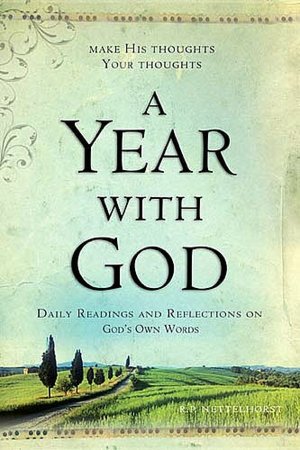Some have pointed to miracles as proof for the existence of God: a rather spectacular sort of evidence. Most Christians believe God either does, or at least has, intervened in the physical world. By God’s intervention they mean “an occurrence in this, the natural world, which is not brought about by physical causes but is, rather, directly caused by God.” In other words, something is a miracle if it has a supernatural cause or, as is commonly expressed “the laws of nature are violated.” For instance, the burning bush of Moses, or Jesus turning the water to wine, by definition are miracles. If such events actually occurred, they serve as very good evidence for the existence of God.
It must be noted, though, that not all miracles are violations of natural laws. R.F. Holland gives the example of a child on a railroad track who is playing around the bend from an approaching train, so that neither the child nor the train’s engineer know of the other’s location. The child’s poor mother is up the hill from this developing tragedy, and can see both her son and the train, but because of distance, is unable to do anything. Suddenly, the train slows, and comes to a halt, only a few feet from her child.
The mother thanks God for the miracle, which she never ceases to think of as such although, as she in due course learns, there was nothing supernatural about the manner in which the brakes of the train came to be applied. The driver had fainted, for a reason that had nothing to do with the pres-ence of the child on the line, and the brakes were applied automatically as his hand ceased to exert pressure on the control lever.
( R.F. Holland, “The Miraculous,” American Philosophical Quarterly (1965), pp. 43-51.)
Such a story shows an amazing coincidence. Therefore, some have argued that we need to postulate two types of miracles: the “violation of nature” miracle, and the “coincidence” miracle. While in the second sort of miracle, God does not seem to violate any law of nature, the coincidence is such as to seemingly betray his hand.
However, probability theory is sufficient to explain such “coincidences,” and in fact we might even say we should expect them. Furthermore, while many “coincidences” can be listed which resulted in amazing rescues and last minute salvations, in like manner, one can list amazing coincidences where horrible disaster was the result. Therefore, it can be argued that so long as both the good and the bad coincidences are explainable individually by ordinary chance, there is no need to suspect supernatural involvement.
While supernatural intervention cannot be shown to exist, it likewise must be admitted by the skeptic that such supernatural involvement cannot automatically be denied—unless he begins with the presupposition that “God does not exist” or “there is no supernatural” or “there are natural explanations for everything.” Such axioms are no more or less valid than their opposites, since, like the axiom “God exists,” they are unprovable.
Keith Lehrer writes:
The more usual attempt to justify belief in God on the basis of miracles, however, is premised on the existence of violation-miracles. If there are grounds to believe that some law of nature confirmed to hold universally has been violated in such a way that some disaster has been averted, or someone aided, or some insight received, then this is surely some evidence for justifying the claim that occasionally God has intervened in the natural course of things either to bring about a miracle or to reveal something. Are there, then, grounds for believing that there have been miraculous violations of laws of nature? The most celebrated attempt to deny such grounds is that made by David Hume.
(Keith Lehrer, Philosophical Problems and Arguments: An Introduction, New York: Macmillan Publishing Co., 1974, p. 347)
Hume wrote:
A miracle is a violation of the laws of nature; and as a firm and unalterable experience has established these laws, the proof against a miracle, from the very nature of the fact, is as entire as any argument from experience can possibly be imagined….Nothing is esteemed a miracle, if it ever happens in the common course of nature. It is no miracle that a man, seemingly in good health, should die of a sudden; because such a kind of death, though more unusual than any other, has yet been frequently observed to happen. But it is a miracle that a dead man should come to life; because that has never been observed in any age or country. There must, therefore, be a uniform experience against every miraculous event, otherwise the event would not merit the appel-lation. And as a uniform experience amounts to a proof, there is here a direct and full proof, from the nature of the fact, against the existence of any mira-cle; nor can such a proof be destroyed, or the miracle rendered credible, but by an opposite proof, which is superior.
(Hume, Enquiries)
Against the eyewitness of a miracle—for instance, of someone seeing a dead man returned to life—David Hume asks whether it is more likely that the eyewitness was deceived, or that the dead man was restored to life?
I weigh the one miracle against the other; and according to the superiority which I discover, I pronounce my decision, and always reject the greater miracle. If the falsehood of his testimony would be more miraculous than the event which he relates, then, and not till then, can he pretend to command my belief or opinion.
(Hume, Enquiries)
It is widely assumed that Hume dealt a death blow to the possibility of “miracles”.
However, we may be missing something obvious. Is the definition of miracle, as David Hume and most Christians have accepted it, correct?
Must miracle assume a violation of the laws of nature?
For instance, for the last two thousand years the virgin birth was ridiculed as impossible fiction, a violation of the laws of nature. But with modern technology, such virgin births are eminently feasible and even routine by means of artificial insemination (or implantation, as in the case of surrogate motherhood). As Arthur C. Clarke pointed out, “Any sufficiently well-developed technology is indistinguishable from magic”.
I think we have been in error in assuming miracles are violations of nature. Rather, the key phrase in defining a miracle is “God’s intervention”; such intervention does not necessarily require suspension of natural law.
One failure of Christian apologetics has been a penchant for postulating God as the cause for anything inexplicable—the so-called “God-of-the-gaps” approach. The inevitable result has been a constantly shrinking God, and a growing irreconcilability between natural and special revelation. As an example of the foolishness some sink to, there are still those who will argue that it is God, “miraculously” intervening, that “holds the universe together,” and that his active interference is the only thing that keeps the atoms from flying apart because there is no scientific reason for the atoms to stay together.
Right. Now is not the time to go into the fundamental forces in nature: strong, weak, electromagnetic, and gravitational, but you get the picture. Using God as Spackle to fill in the holes in our understanding of the universe is foolish and doomed to failure, since inevitably the unknown, sooner or later, is going to be explained. If your God is merely a filler, eventually your God will disappear.
Hume’s argument, and the position of many Christians, has left them with a “God-of-the-gaps” who is constantly shrinking as scientific knowledge grows. However, it is better to understand miracles as always being the story of the child and the train. God uses the physical universe he created in the same way his creative creatures do: He manipulates it—often very spectacularly, as in the parting of the Red Sea or the resurrection of Jesus—doing things that are impossible by current technology, but do not necessarily violate known physical laws.
Part of the reluctance of some to accept the axiom that “God exists” relates to the question of the “supernatural” verses “natural,” as if “supernatural” means something other than real. Perhaps we would do well to view God as simply a being outside space-time, and responsible for its existence, but no less real—just different. We need to get away from equating God with mystery, or imagining that knowledge makes him vanish in a puff of smoke.
 Send to Kindle
Send to Kindle
 A Year With God
A Year With God A Year With Jesus
A Year With Jesus The Bible's Most Fascinating People
The Bible's Most Fascinating People The Bible: A Reader's Guide
The Bible: A Reader's Guide Antediluvian
Antediluvian Inheritance
Inheritance John of the Apocalypse
John of the Apocalypse Somewhere Obscurely
Somewhere Obscurely The Wrong Side of Morning
The Wrong Side of Morning